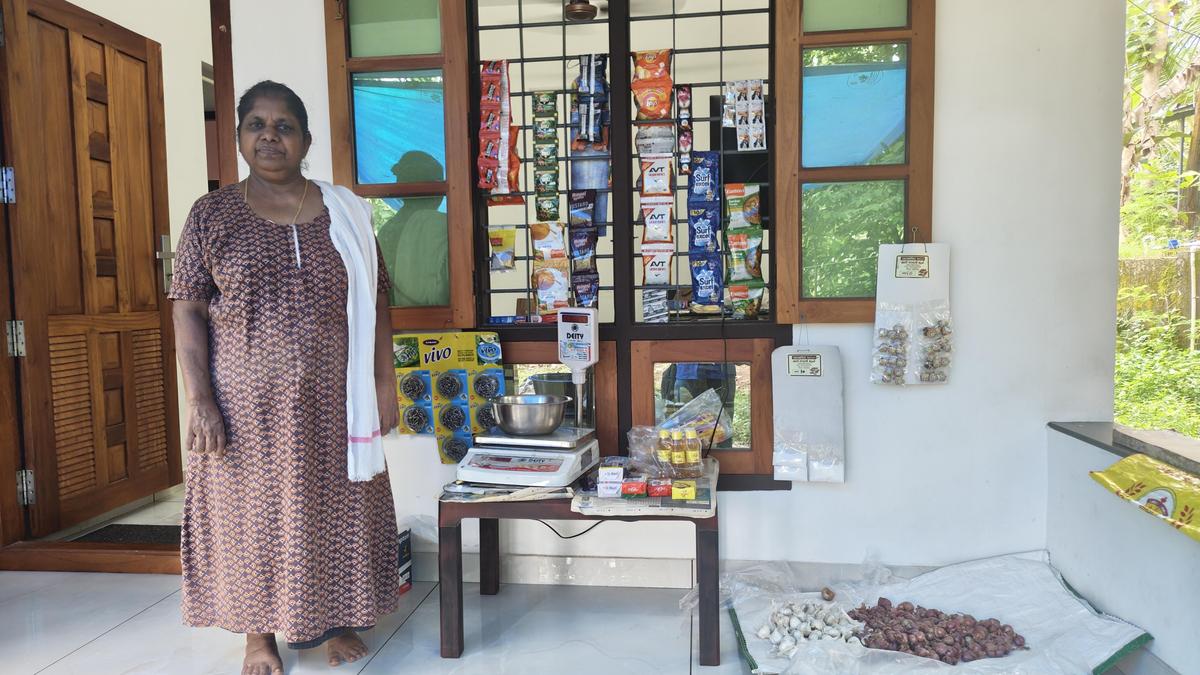The first thing that catches one’s attention on walking into Ambika Devi’s house, located deep inside a bylane at Chellamangalam ward in Thiruvananthapuram, is the humble grocery shop set up at the front verandah and extending to a part of the drawing room. The funding for the shop, a livelihood option tailor-made for her health condition, was provided to the 57-year-old widow along with the house, through the Kerala government’s Extreme Poverty Eradication Programme (EPEP).
“After my husband passed away seven years ago following a long battle with illnesses, I was living in our dilapidated house. But once a part of it collapsed, I went to live with my sister, where I stayed for two years. Last September, I got this house through EPEP,” says Ambika.
“In December,” says Ambika, “I got an initial funding of ₹50,000 from the project to set up the grocery shop. It was an option suggested by the Corporation officials as I could not walk much or take up any strenuous work. Since people from the neighbourhood regularly purchase from here now, I get just enough income to survive,” she says.
On November 1, when the Kerala government would declare the State as free from extreme poverty, the first State to make such a declaration, Ambika will be counted among the 59,277 families to be uplifted from extreme poverty. A study by NITI Aayog in 2021 had assessed Kerala’s poverty rate as 0.7%, the lowest in the country. The welfare policies pursued by the successive governments had succeeded in bringing down the poverty rate to the pre
Continue Reading on The Hindu
This preview shows approximately 15% of the article. Read the full story on the publisher's website to support quality journalism.
